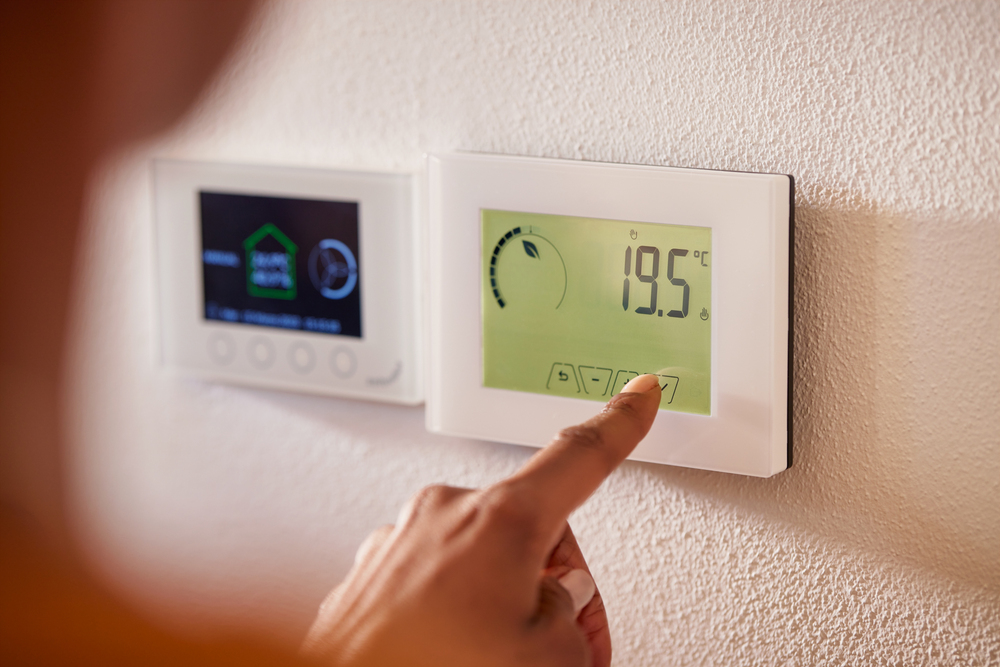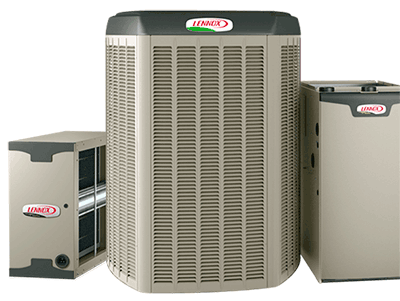How Smart HVAC Controls Can Reduce Energy Bills and Carbon Footprints
Feb 2, 2025

How Smart HVAC Controls Can Reduce Energy Bills and Carbon Footprints
In an era where energy efficiency and environmental sustainability are top priorities for homeowners, smart HVAC controls are leading the way in redefining home comfort. As utility bills rise and climate concerns grow, the ability to precisely manage your home’s heating, cooling, and ventilation has become more important than ever. These smart systems offer a powerful solution by seamlessly integrating technology to maximize energy efficiency and minimize environmental impact.
This article explores how smart HVAC controls can significantly reduce energy bills and lower carbon footprints—helping you save money while making your home greener.
What Are Smart HVAC Controls?
Smart HVAC controls are intelligent systems designed to improve the performance of your heating, ventilation, and air conditioning (HVAC) units. Unlike traditional thermostats, smart controls use advanced technology—such as machine learning, real-time data tracking, and connectivity with other smart home devices—to adjust temperature settings automatically. Many systems can be controlled remotely via smartphone apps or home assistants like Alexa and Google Home, giving you unprecedented control over your home’s climate.
These features make smart HVAC controls an investment that pays off in both cost savings and eco-friendly performance.
1. Customized Temperature Scheduling for Energy Efficiency
One of the most effective ways smart HVAC controls help reduce energy usage is through personalized temperature schedules. Smart systems allow you to set specific temperatures for different times of the day. For example:
By aligning your HVAC system’s operation with your daily routines, you can avoid energy waste and ensure comfort when you need it most. Studies show that households with smart thermostats can reduce energy consumption by up to 10-15% annually, depending on usage patterns.
2. Adaptive Learning: Smarter Over Time
Many smart HVAC controls use adaptive learning technology to study your habits and preferences. Over time, these systems learn when you’re typically home, what temperatures you prefer, and when certain areas of your home need more or less heating or cooling.
For instance, if the system notices you always adjust the temperature up in the morning, it will eventually make that change automatically. This predictive behavior ensures that your home is always comfortable without you needing to make constant adjustments, saving you time and energy.
By optimizing energy usage based on learned behavior, smart HVAC controls reduce unnecessary strain on the system, improving efficiency and extending the lifespan of HVAC components.
3. Remote Access for On-The-Go Control
Smart HVAC controls offer remote access, allowing you to monitor and adjust your system from anywhere. Whether you’re stuck in traffic, traveling, or running errands, you can:
Remote access ensures that your system runs only when necessary, helping you avoid the costly mistake of heating or cooling an empty home. Plus, real-time notifications can alert you if your system is running inefficiently or requires maintenance, enabling proactive problem-solving.
4. Integration With Smart Sensors and Weather Data
Smart HVAC systems often integrate with indoor and outdoor sensors to further enhance efficiency. These sensors detect environmental changes and adjust HVAC settings accordingly. For example:
By responding dynamically to real-time data, smart HVAC controls ensure that your home stays comfortable without unnecessary power usage.
5. Reducing Your Carbon Footprint
Every kilowatt-hour (kWh) of energy saved with a smart HVAC system reduces your home’s carbon footprint. Since most households still rely on power generated by fossil fuels, using less energy directly translates into fewer carbon emissions. Here’s how smart controls contribute to a more eco-friendly home:
6. Savings on Utility Bills
While the initial investment in smart HVAC controls may seem significant, the long-term savings are substantial. The ability to reduce energy waste can lead to monthly savings on utility bills. Homeowners typically see their investment pay off within a few years, especially when rebates or energy incentives are available.
According to recent reports, homeowners who switch to smart HVAC controls can save anywhere from $100 to $300 annually on heating and cooling costs, depending on their home size and energy usage.
Ready to lower your energy bills and live sustainably?
HVAC controls can revolutionize your home comfort while reducing your carbon footprint. Take control of your energy efficiency today—upgrade to a smarter, greener home. Contact us now to learn more and get started!
Is a Smart HVAC System Right for You?
If you’re considering upgrading your home’s HVAC system, smart controls are an excellent addition. They offer convenience, energy efficiency, and significant environmental benefits, making them an ideal choice for tech-savvy homeowners looking to modernize their living space.
When selecting a smart HVAC control system, look for features like:
For the eco-conscious homeowner, pairing smart HVAC controls with energy-efficient appliances and renewable energy sources, such as solar panels, can create an ultra-efficient home that reduces both costs and environmental impact.
Conclusion
Smart HVAC controls are transforming the way we heat and cool our homes. By offering features like adaptive learning, remote access, and integration with smart sensors, these systems provide homeowners with the tools they need to save energy and reduce their carbon footprint. With the added benefit of lower utility bills and a more comfortable living environment, smart HVAC controls are a forward-thinking investment that aligns with both financial and environmental goals.
As 2025 unfolds, embracing this technology is a simple yet impactful step toward a more sustainable and cost-effective home.
Ready to transform your home’s comfort and efficiency?
Let Rinaldi’s Heating & Air Conditioning help you choose the perfect smart HVAC system for your needs. Our expert team will ensure seamless integration, maximizing convenience, energy savings, and environmental benefits.

